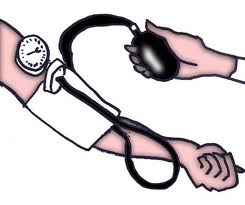
Most of us would much rather spend time with our grandchildren, go on a road trip or clean our gutters than go to the doctor, but part of maintaining our health well into our Golden Years is regularly visiting our healthcare practitioner and having the information we need to better manage our health.
Many of the ailments and chronic conditions that affect people later in life can be avoided or better managed by having a solid understanding of our overall health and recognizing simple lifestyle changes that could have a significant impact on our future health.
The first step in determining how best to ensure a long, happy, healthy life is knowing our current health status and making the changes needed to improve it. To that end, here are four numbers you should know so that you can better manage your health now and in the future.
1. Blood Pressure – High blood pressure can contribute to heart disease, stroke and kidney failure, but many adults with hypertension are not even aware they have it. Regular blood pressure checks can help you better monitor your health and make necessary lifestyle changes. High blood pressure may necessitate medical intervention with prescription drugs, but you can lower your blood pressure naturally by reducing stress, exercising, maintaining a healthy diet and watching your sodium intake.
2. Blood Sugar – A fasting blood sugar level of more than 100mg/dL could mean that you are on your way to developing diabetes. Getting a simple blood test will let you know your blood sugar level and whether or not you may need to make lifestyle changes to work towards lowering it. Folks who have diabetes are more likely to have high cholesterol and high blood pressure, which can lead to heart disease, stroke and other ailments.
 3. Cholesterol – There are four numbers you need to know to have a good overall picture of your cholesterol levels: LDL cholesterol, HDL cholesterol, total cholesterol and triglycerides. These four numbers come together to help you better understand your risk of developing heart disease or having a heart attack. You can lower your cholesterol by limiting your consumption of animal products, avoiding saturated fat and exercising.
3. Cholesterol – There are four numbers you need to know to have a good overall picture of your cholesterol levels: LDL cholesterol, HDL cholesterol, total cholesterol and triglycerides. These four numbers come together to help you better understand your risk of developing heart disease or having a heart attack. You can lower your cholesterol by limiting your consumption of animal products, avoiding saturated fat and exercising.
4. Body Mass Index (BMI) – Maintaining a healthy weight is an important part of ensuring good health in the future, and knowing your BMI can help you determine whether or not a little weight loss might be in order. A BMI of more than 30 is considered obese, so if you are in the high 20s or over 30, you may be at higher risk for diabetes, stroke, heart disease, high blood pressure and chronic ailments that are affected by weight.
Each of these numbers is easy to obtain through simple tests, and knowing your numbers is crucial to maintaining your health and helping to make sure you will be able to fully enjoy your later years.

How do full timers deal with ongong prescription maintenance?